
Exciting new series on “Voice, Body and Movement for Lawyers – How to connect with the jury and find Justice Through Dramatic Technique!”
Click here to find out more
Attorneys hopefully recognize that like many other professionals, their lives are filled to the brim with stress. It’s important to be proactive in dealing with it. The consequences of shrugging it off can be catastrophic - not only for them but for their family, staff and friends.
And then there’s trauma. The ramifications of trauma aren’t discussed as frequently as those of stress and thus, for many attorneys, trauma is a topic in need of attention. Trauma can be secondary or vicarious. Trauma also results from a personal loss such as the death of a family member or a close friend.
Now that we are all dealing with the unexpected impact of a generational and societal traumatic event – the COVID-19 Pandemic, it’s important to recognize the signs of trauma in yourself as well as in your office staff, family and clients.
Hear from our experienced speaker as he shares his personal story of trauma and learn how you can recognize the unhealthy and potentially life-threatening shadow it can cast.
Recent studies have shown that there has been a dramatic increase in impairment due to alcoholism, addiction and mental health disorders among members of the legal profession. The statistics are compelling and clearly indicate that 1 out of 3 attorneys will likely have a need for substance use or mental health services at some point in their careers.
Mr. Quinn will discuss:
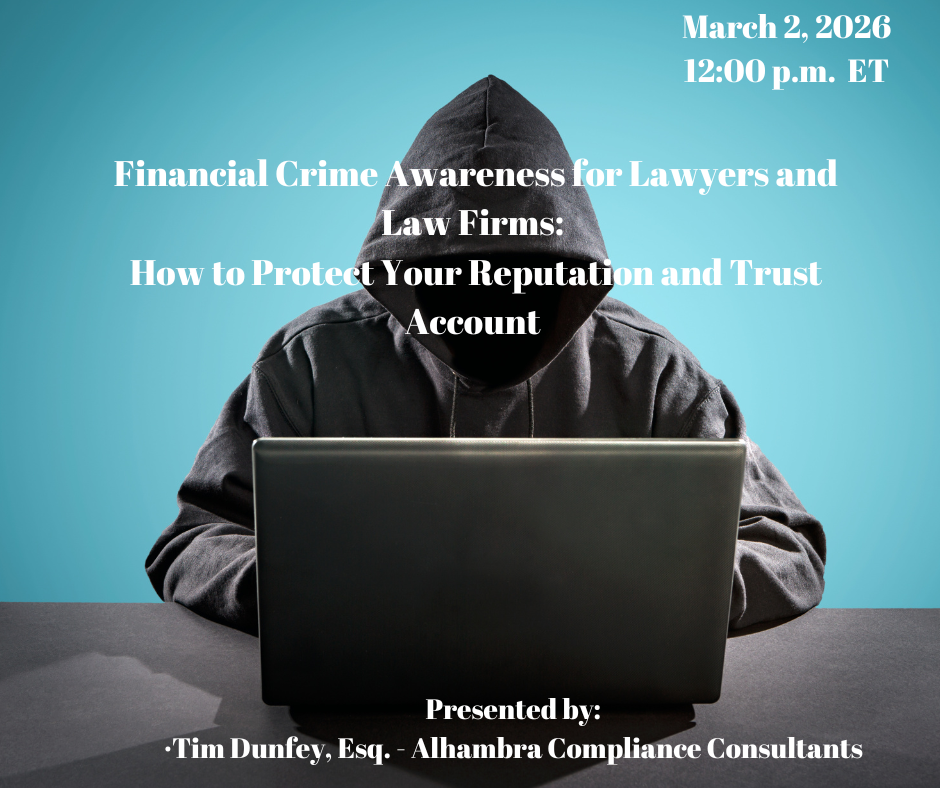
Attorneys and law firms are well known vectors for money laundering risk. Banks regularly labe...

This presentation provides an overview of copyright law particularly as it applies to music. The pre...
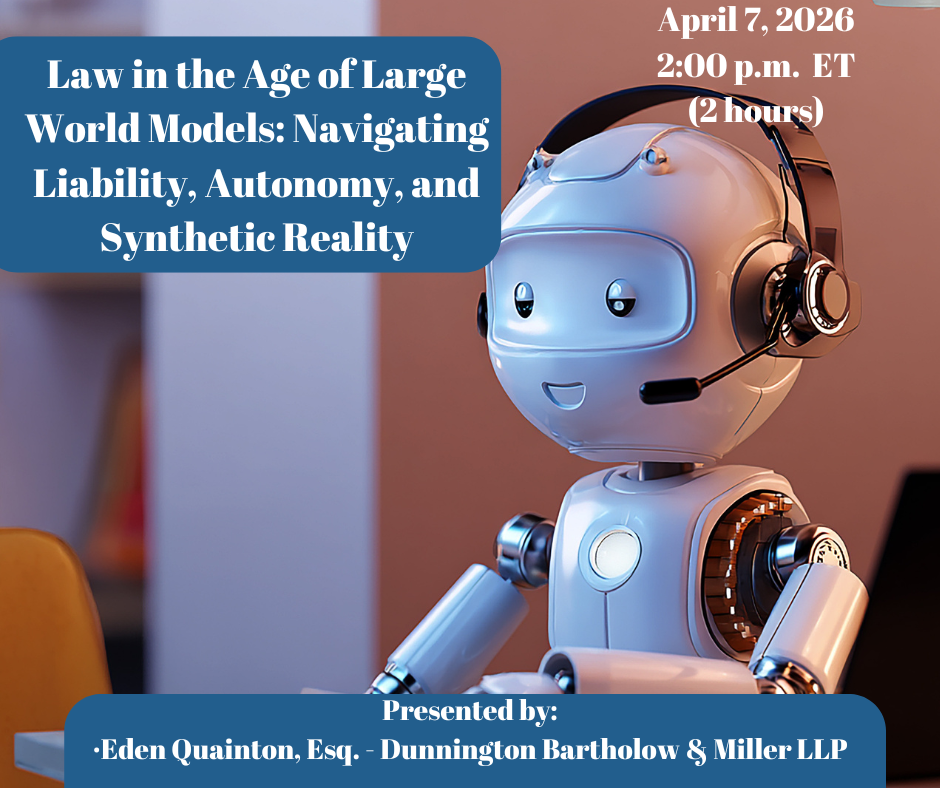
Large World Models (LWMs)— the next generation of AI systems capable of generating...
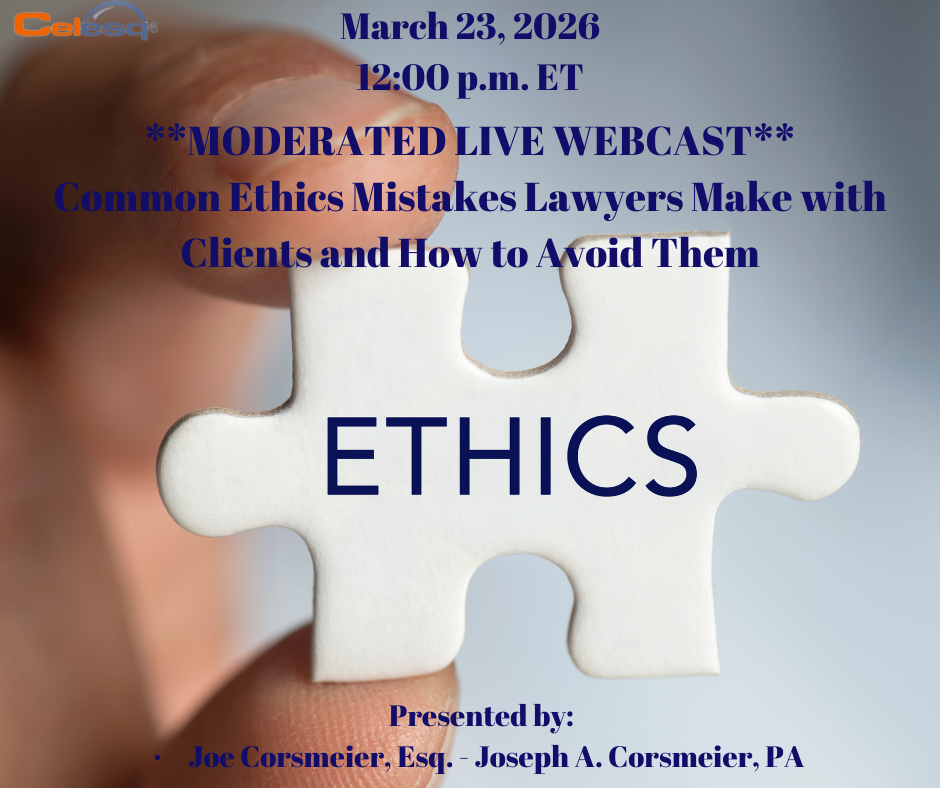
Many lawyers may not fully understand the Bar rules and ethical considerations regarding client repr...
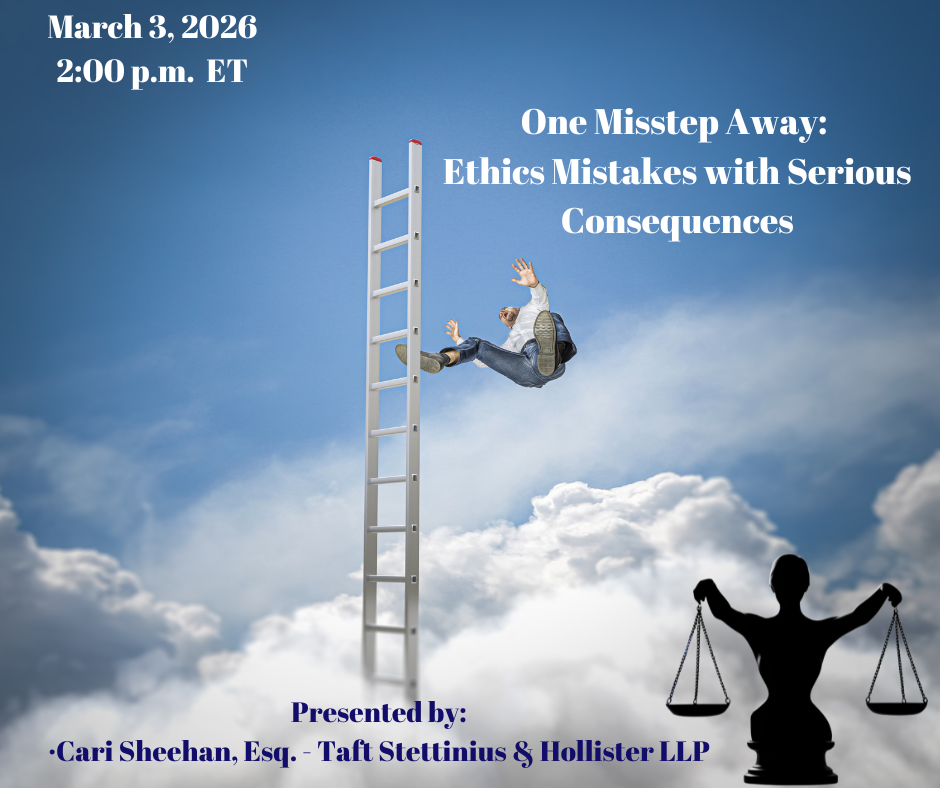
This ethics program examines common, but often avoidable, professional responsibility mistakes that ...
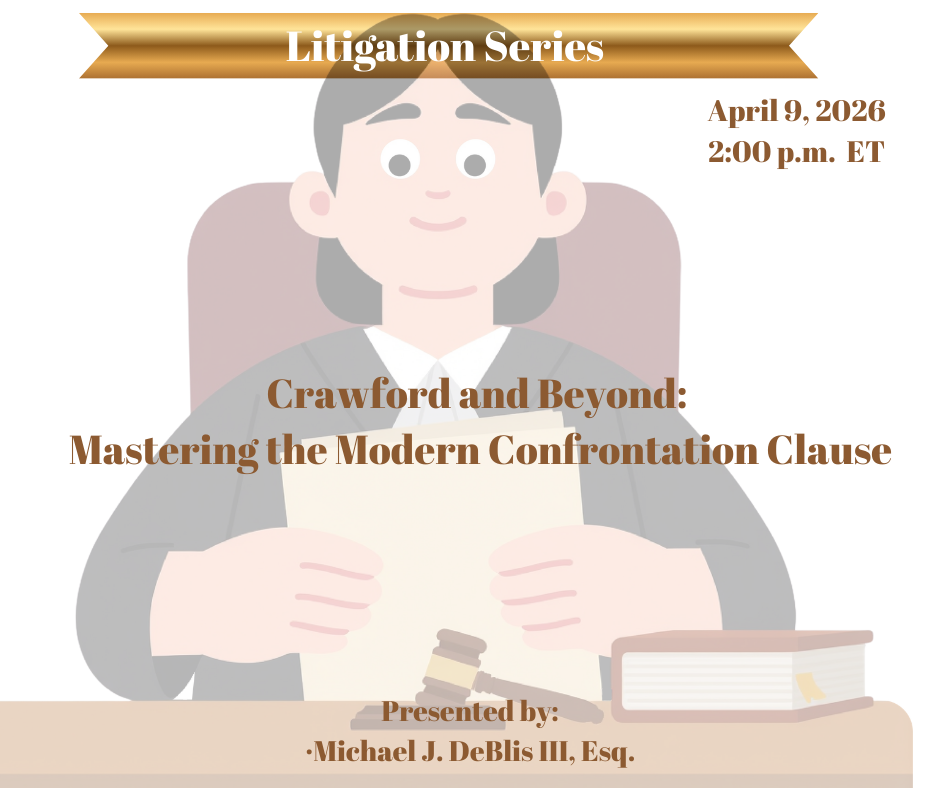
This program provides a comprehensive analysis of the Sixth Amendment Confrontation Clause as reshap...
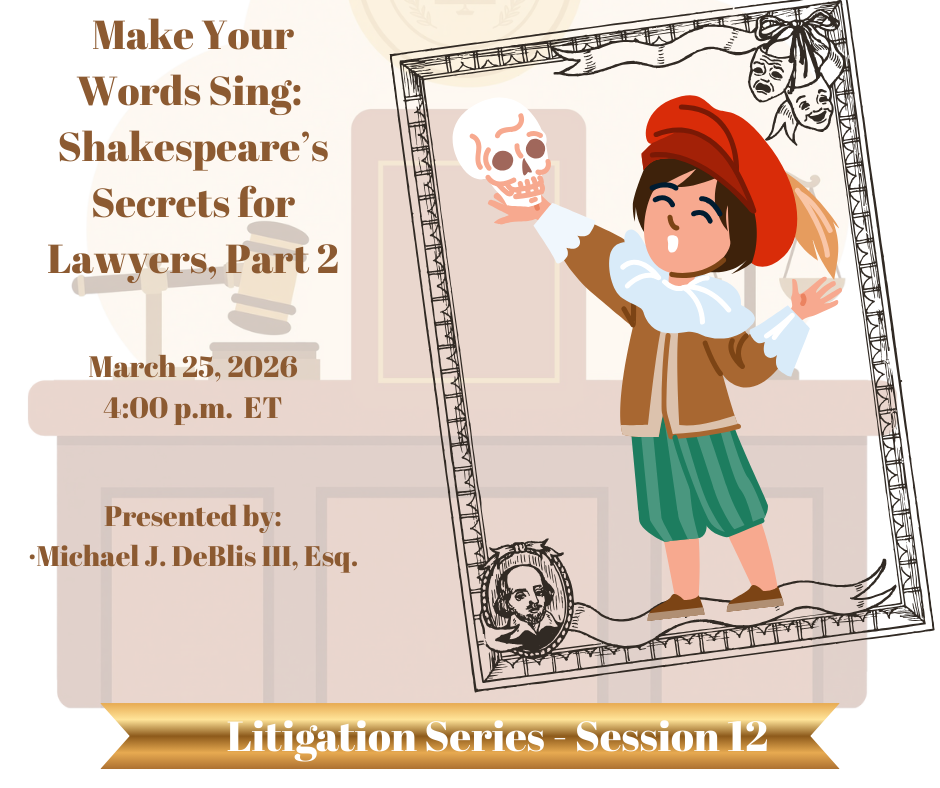
This companion program to Part 1 goes deeper into the rhetorical power of Shakespeare, emphasizing h...

The landscape of global finance is undergoing a seismic shift as traditional assets migrate to the b...

This program examines critical 2025-2026 developments in patent eligibility for software and AI inve...
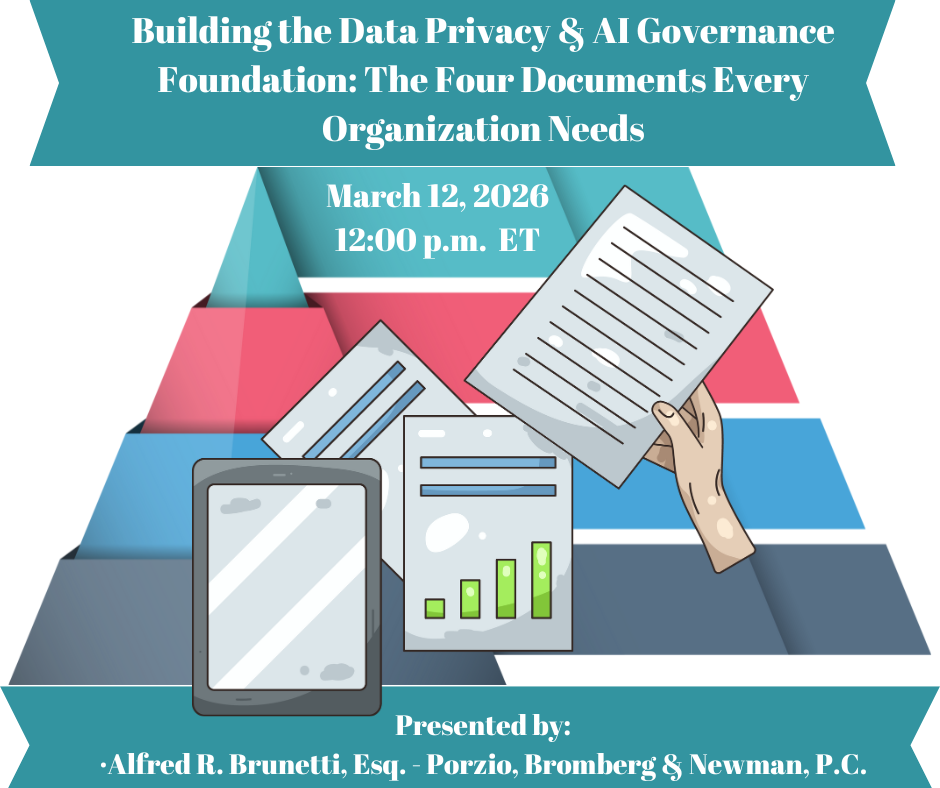
Effective data privacy and artificial intelligence governance programs do not happen by accident. Th...